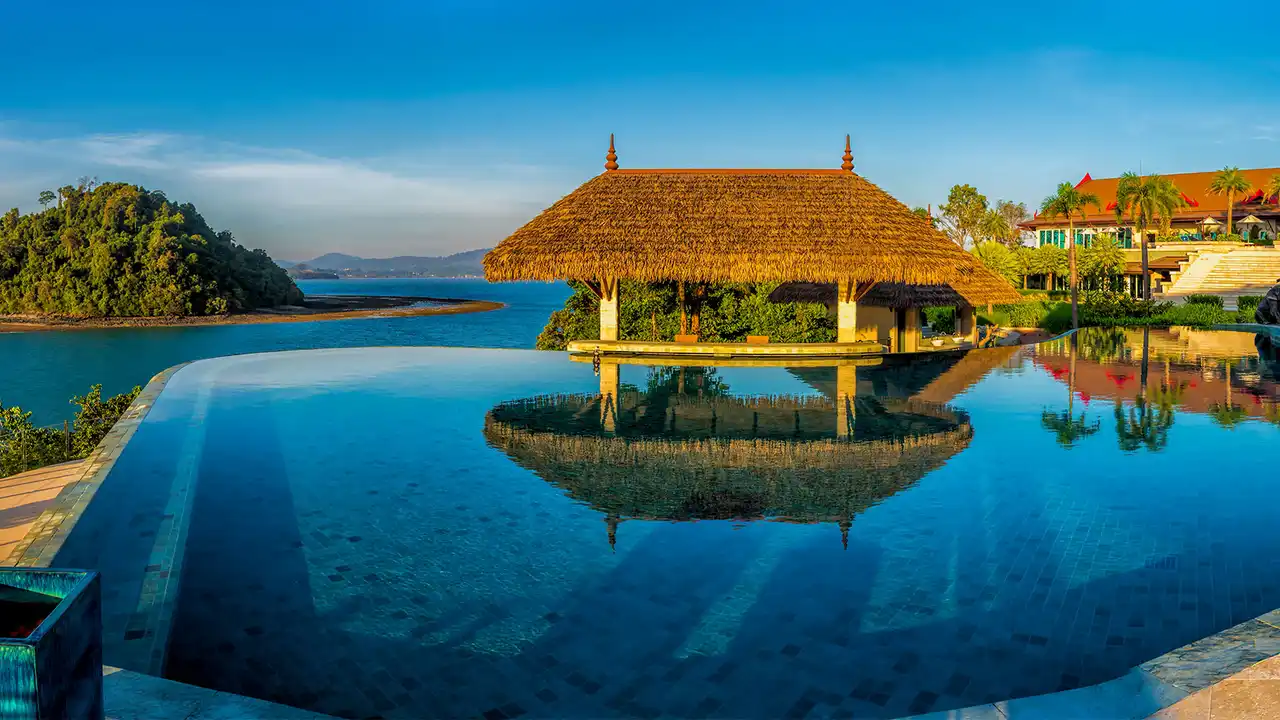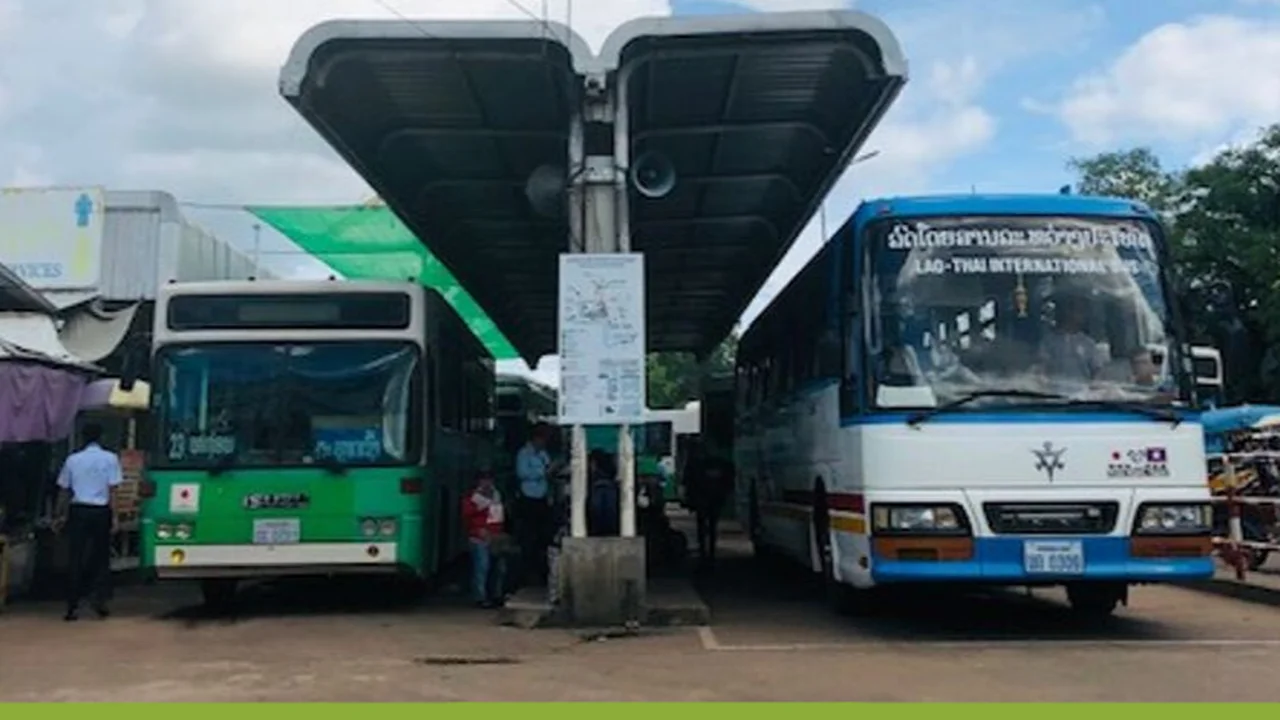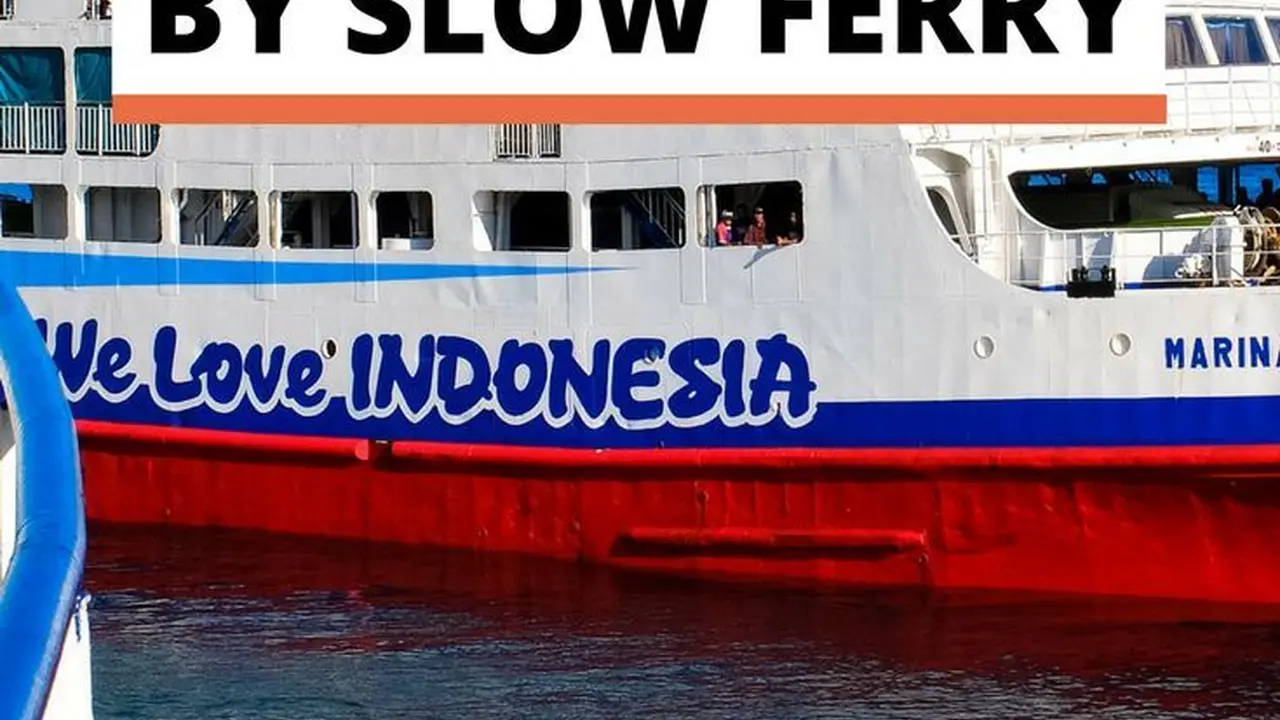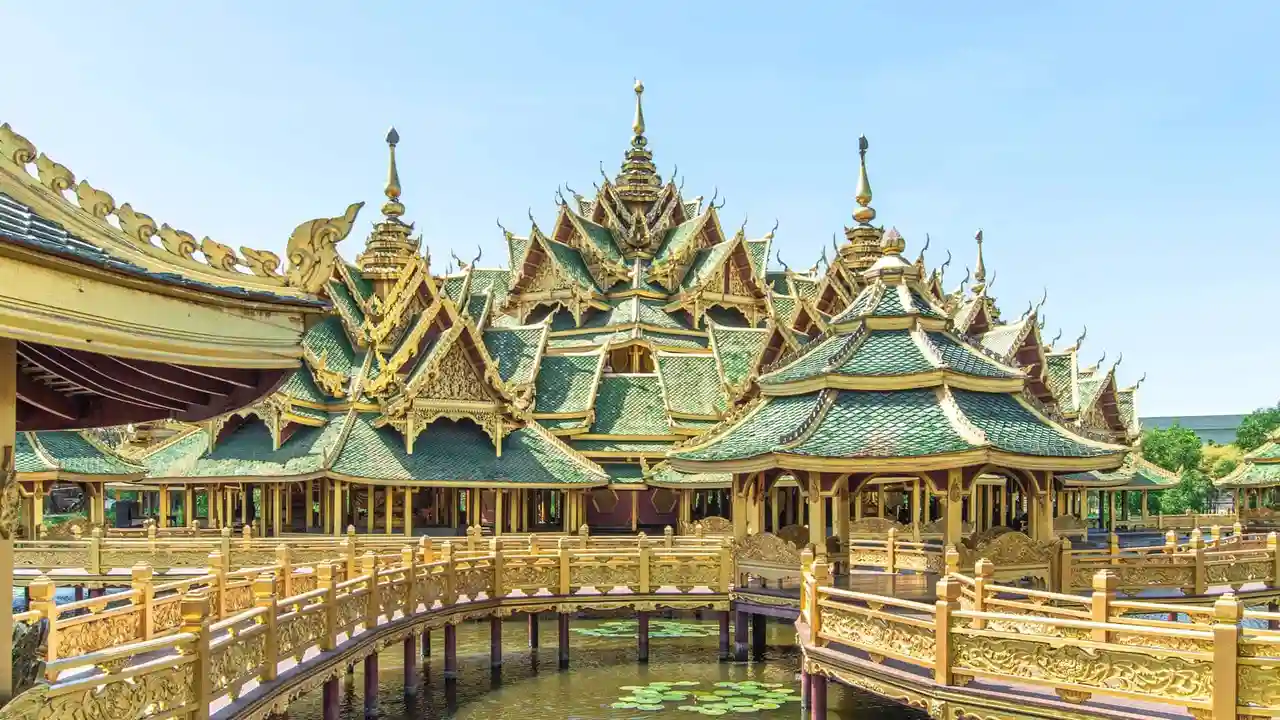Eco-Friendly Resorts in Southeast Asia

Introduction to Sustainable Travel and Eco Resorts
Hey there, fellow travelers! Ever thought about how your vacation impacts the planet? Let's be real, jet-setting around the globe isn't exactly the greenest activity. But what if you could explore stunning destinations while minimizing your footprint? That's where eco-friendly resorts come in. Southeast Asia, with its breathtaking landscapes and vibrant cultures, is a hotspot for sustainable tourism. These resorts are designed to blend seamlessly with nature, support local communities, and minimize environmental impact. Think solar panels, locally sourced food, and conservation efforts. It's all about enjoying paradise without trashing it!
What Makes a Resort Eco-Friendly Key Features and Certifications
So, what exactly makes a resort "eco-friendly"? It's not just about slapping a "green" label on the door. Here's a breakdown of key features:
- Sustainable Building Materials: Bamboo, reclaimed wood, and locally sourced materials are common. Think natural and renewable.
- Energy Efficiency: Solar panels, energy-efficient lighting, and smart HVAC systems are a must.
- Water Conservation: Rainwater harvesting, greywater recycling, and water-efficient fixtures help minimize water usage.
- Waste Management: Composting, recycling programs, and reducing single-use plastics are crucial.
- Local Sourcing: Supporting local farmers, artisans, and businesses reduces transportation emissions and boosts the local economy.
- Community Engagement: Employing local staff, supporting local schools, and respecting local cultures are essential.
- Conservation Efforts: Many resorts actively participate in conservation projects, such as protecting coral reefs or supporting wildlife sanctuaries.
Certifications: Look for certifications like Green Globe, LEED (Leadership in Energy and Environmental Design), and EarthCheck. These certifications provide assurance that the resort meets specific sustainability standards.
Top Eco Resorts in Southeast Asia Detailed Reviews and Recommendations
Alright, let's dive into some specific eco-friendly resorts that are doing it right:
1. Song Saa Private Island Cambodia Luxury and Conservation
Location: Koh Rong Archipelago, Cambodia
Overview: Song Saa Private Island is the epitome of luxury and sustainability. This all-inclusive resort is located on two pristine islands, connected by a footbridge over a marine reserve. It's a haven for relaxation and conservation.
Sustainability Highlights:
- Marine Conservation: The resort established Cambodia's first marine reserve, protecting coral reefs and marine life.
- Community Support: The Song Saa Foundation supports local communities through education, healthcare, and sustainable livelihoods.
- Sustainable Practices: The resort uses solar power, rainwater harvesting, and organic gardening.
Experiences: Snorkeling, diving, kayaking, private beach dinners, spa treatments.
Pricing: Starting from $1,800 per night (all-inclusive)
2. The Datai Langkawi Malaysia Rainforest Retreat
Location: Langkawi, Malaysia
Overview: Nestled in a 10-million-year-old rainforest, The Datai Langkawi offers a luxurious escape surrounded by nature. The resort is committed to preserving the rainforest and supporting local communities.
Sustainability Highlights:
- Rainforest Conservation: The resort actively protects the surrounding rainforest and supports conservation efforts.
- Sustainable Practices: The Datai uses energy-efficient lighting, water-saving fixtures, and composting programs.
- Local Sourcing: The resort sources ingredients from local farms and supports local artisans.
Experiences: Nature walks, birdwatching, cooking classes, spa treatments, golf.
Pricing: Starting from $600 per night
3. Nihi Sumba Indonesia Adventure and Philanthropy
Location: Sumba Island, Indonesia
Overview: Nihi Sumba is more than just a resort; it's a philanthropic project that supports the local community. The resort offers a unique blend of adventure, luxury, and sustainability.
Sustainability Highlights:
- Sumba Foundation: Nihi Sumba supports the Sumba Foundation, which provides clean water, healthcare, and education to local communities.
- Sustainable Practices: The resort uses solar power, rainwater harvesting, and organic gardening.
- Community Engagement: The resort employs local staff and supports local artisans.
Experiences: Surfing, horseback riding, waterfall hikes, village visits, spa treatments.
Pricing: Starting from $1,200 per night (all-inclusive)
4. Six Senses Yao Noi Thailand Island Paradise
Location: Yao Noi, Thailand
Overview: Six Senses Yao Noi offers stunning views of Phang Nga Bay and a commitment to sustainable practices. The resort is designed to blend seamlessly with the natural environment.
Sustainability Highlights:
- Sustainable Building Materials: The resort uses locally sourced and sustainable building materials.
- Energy Efficiency: The resort uses solar power and energy-efficient lighting.
- Water Conservation: The resort uses rainwater harvesting and water-efficient fixtures.
Experiences: Island hopping, snorkeling, diving, kayaking, spa treatments.
Pricing: Starting from $800 per night
5. Bawah Reserve Indonesia Pristine Archipelago
Location: Anambas Islands, Indonesia
Overview: Bawah Reserve is a collection of six islands, three lagoons, and thirteen beaches. This eco-luxury resort is committed to preserving the pristine environment.
Sustainability Highlights:
- Marine Conservation: The resort protects the surrounding coral reefs and marine life.
- Sustainable Practices: The resort uses solar power, rainwater harvesting, and organic gardening.
- Community Engagement: The resort employs local staff and supports local communities.
Experiences: Snorkeling, diving, kayaking, paddleboarding, private beach picnics, spa treatments.
Pricing: Starting from $1,900 per night (all-inclusive)
6. Alila Villas Uluwatu Bali Indonesia Cliffside Luxury
Location: Uluwatu, Bali, Indonesia
Overview: Perched on a dramatic cliffside overlooking the Indian Ocean, Alila Villas Uluwatu combines luxurious villas with a strong commitment to sustainability. Designed using environmentally sustainable principles, the resort offers breathtaking views and a guilt-free stay.
Sustainability Highlights:
- EarthCheck Certification: Alila Villas Uluwatu is certified by EarthCheck, ensuring adherence to rigorous environmental standards.
- Water Conservation: Extensive rainwater harvesting system provides a significant portion of the resort's water needs. They also use a greywater recycling system for irrigation.
- Waste Management: Comprehensive waste management program including composting and recycling initiatives. They also strive to minimize single-use plastics.
- Energy Efficiency: Energy-efficient lighting and smart building design contribute to reduced energy consumption.
- Local Sourcing: The resort prioritizes sourcing food and other products from local farmers and artisans, supporting the local economy.
Experiences: Infinity pool relaxation, spa treatments, surfing, temple visits, cultural experiences.
Pricing: Starting from $700 per night.
7. Misool Raja Ampat Indonesia Diving Paradise
Location: Raja Ampat, Indonesia
Overview: Misool is a private island resort located in the heart of Raja Ampat, one of the most biodiverse marine environments on Earth. The resort is dedicated to protecting the surrounding reefs and supporting local communities. This is our focus resort for this extended example.
Sustainability Highlights:
- Marine Conservation: Misool established a no-take zone around the resort, protecting coral reefs and marine life. They actively patrol the area to prevent illegal fishing.
- Community Support: The resort supports local communities through education, healthcare, and sustainable livelihoods. They employ almost exclusively local staff.
- Sustainable Practices: The resort uses reclaimed wood, solar power, and rainwater harvesting. They have a strict "no plastic" policy.
Experiences: Diving, snorkeling, kayaking, island hopping, spa treatments.
Pricing: Starting from $1,000 per night (all-inclusive)
Essential Eco Friendly Products for Your Southeast Asia Trip
Okay, so you've booked your eco-friendly resort. Now, let's talk about what to pack to minimize your impact even further. Here are some essential eco-friendly products:
1. Reusable Water Bottle Stay Hydrated Sustainably
Why You Need It: Single-use plastic bottles are a huge environmental problem. A reusable water bottle is a simple and effective way to reduce your plastic consumption.
Product Recommendations:
- Hydro Flask: Durable, insulated, and keeps your drinks cold for hours. Price: $30-$50
- Nalgene: Lightweight, BPA-free, and virtually indestructible. Price: $10-$20
- Collapsible Water Bottle (e.g., Nomader): Space-saving and easy to pack. Price: $20-$30
Usage Scenarios: Hiking, exploring cities, relaxing on the beach, airport travel.
Comparison: Hydro Flask is great for keeping drinks cold, while Nalgene is more affordable and durable. Collapsible bottles are perfect for saving space in your luggage.
2. Reef Safe Sunscreen Protect Yourself and the Ocean
Why You Need It: Traditional sunscreen contains chemicals that can harm coral reefs. Reef-safe sunscreen is formulated without these harmful chemicals.
Product Recommendations:
- Thinksport Safe Sunscreen: Mineral-based, broad-spectrum protection. Price: $15-$20
- Badger Balm SPF 30 Unscented Sunscreen: Organic, mineral-based, and gentle on sensitive skin. Price: $15-$25
- Raw Elements Tinted Facial Moisturizer SPF 30: Reef-safe, tinted moisturizer with broad-spectrum protection. Price: $20-$30
Usage Scenarios: Swimming, snorkeling, diving, sunbathing.
Comparison: Thinksport is a good all-around option, while Badger Balm is ideal for sensitive skin. Raw Elements offers a tinted option for facial use.
3. Bamboo Toothbrush Sustainable Oral Hygiene
Why You Need It: Plastic toothbrushes contribute to plastic waste. Bamboo toothbrushes are biodegradable and a more sustainable alternative.
Product Recommendations:
- Brush with Bamboo Toothbrush: Biodegradable bamboo handle and soft bristles. Price: $5-$10
- The Humble Co. Bamboo Toothbrush: Sustainable bamboo handle and BPA-free nylon bristles. Price: $4-$8
- WooBamboo! Adult Toothbrush: Bamboo handle and charcoal-infused bristles. Price: $6-$12
Usage Scenarios: Daily oral hygiene.
Comparison: All three options are similar in terms of sustainability. Choose based on your preferred bristle type and handle design.
4. Reusable Shopping Bag Reduce Plastic Bag Use
Why You Need It: Plastic shopping bags are a major source of pollution. A reusable shopping bag is a convenient way to reduce your plastic consumption.
Product Recommendations:
- Baggu Standard Baggu: Durable, lightweight, and comes in a variety of colors and patterns. Price: $12-$15
- ChicoBag Original Reusable Shopping Bag: Compact and easy to fold up. Price: $8-$12
- Earthwise Reusable Grocery Bags: Sturdy and spacious. Price: $15-$20 (set of 5)
Usage Scenarios: Grocery shopping, souvenir shopping, carrying essentials.
Comparison: Baggu is stylish and durable, while ChicoBag is more compact. Earthwise bags are ideal for larger grocery trips.
5. Solid Shampoo and Conditioner Bars Reduce Plastic Bottles
Why You Need It: Shampoo and conditioner bottles contribute to plastic waste. Solid shampoo and conditioner bars are a plastic-free alternative.
Product Recommendations:
- Ethique Shampoo and Conditioner Bars: Variety of formulas for different hair types. Price: $15-$20 per bar
- Lush Shampoo Bars: Wide selection of scents and formulas. Price: $12-$15 per bar
- HiBAR Shampoo and Conditioner Bars: Plastic-free packaging and sustainable ingredients. Price: $15-$25 per bar
Usage Scenarios: Hair washing and conditioning.
Comparison: Ethique offers a wide range of formulas, while Lush is known for its unique scents. HiBAR focuses on plastic-free packaging.
Diving Deeper into Misool Raja Ampat and Eco Tourism
The Misool Foundation A Commitment to Conservation
Misool's commitment extends beyond the resort itself. The Misool Foundation, a registered charity, plays a crucial role in protecting the surrounding marine environment. They operate a no-take zone, patrolling the area to prevent illegal fishing and blasting. This has led to a significant increase in fish biomass and coral health.
How Misool Supports Local Communities Empowering Through Employment
Misool prioritizes hiring local staff, providing employment opportunities and supporting local communities. They also work with local communities to promote sustainable fishing practices and protect their traditional way of life.
Misool's Sustainable Practices From Construction to Daily Operations
The resort is constructed using reclaimed wood and operates on solar power. They have a strict "no plastic" policy and recycle all waste. They also use rainwater harvesting to conserve water.
Diving and Snorkeling in Raja Ampat A Marine Paradise
Raja Ampat is known as one of the most biodiverse marine environments on Earth. Diving and snorkeling in Misool offer the opportunity to see a stunning array of marine life, including colorful coral reefs, manta rays, sharks, and countless species of fish.
Beyond Diving Exploring the Islands of Raja Ampat
Beyond diving, Misool offers opportunities to explore the surrounding islands, visit local villages, and learn about the local culture. You can also kayak through mangrove forests, hike to waterfalls, and relax on pristine beaches.
The Impact of Eco Tourism on Raja Ampat Balancing Conservation and Development
Eco-tourism plays a vital role in the conservation of Raja Ampat. By supporting eco-friendly resorts like Misool, you are contributing to the protection of this unique marine environment and supporting local communities. However, it's crucial to ensure that tourism is managed sustainably to minimize its impact on the environment and local culture.
Comparing Misool to Other Eco Resorts in Raja Ampat Similarities and Differences
While Misool is a leading example of eco-tourism in Raja Ampat, other resorts are also committed to sustainable practices. Some alternatives include:
- Papua Paradise Eco Resort: Located on Birie Island, this resort offers overwater bungalows and a commitment to sustainable tourism.
- Sorido Bay Resort: Located on Kri Island, this resort is known for its excellent diving and commitment to marine conservation.
- Stay Raja Ampat Homestays: A network of locally owned homestays that offer a more authentic and affordable experience.
Misool stands out for its comprehensive conservation efforts and commitment to supporting local communities. However, the other options also offer valuable contributions to sustainable tourism in Raja Ampat.
Planning Your Trip to Misool Raja Ampat Tips and Recommendations
Here are some tips for planning your trip to Misool:
- Book in advance: Misool is a popular destination, so it's essential to book well in advance.
- Pack light: Bring only essential items to minimize your luggage weight.
- Bring reef-safe sunscreen: Protect yourself and the coral reefs.
- Respect local customs: Be mindful of local customs and traditions.
- Support local businesses: Purchase souvenirs and support local businesses whenever possible.
The Future of Eco Tourism in Southeast Asia A Growing Trend
Eco-tourism is a growing trend in Southeast Asia, as more travelers become aware of the importance of sustainable travel. By choosing eco-friendly resorts and supporting sustainable practices, you can help protect the environment and support local communities.
The Role of the Traveler in Sustainable Tourism Making Conscious Choices
As a traveler, you have a crucial role to play in promoting sustainable tourism. By making conscious choices about where you stay, what you eat, and how you travel, you can minimize your impact on the environment and support local communities.
Product Spotlight: The Scubapro Hydros Pro BCD - Eco-Conscious Diving Gear
For divers looking to minimize their environmental impact, the Scubapro Hydros Pro BCD is a fantastic option. It's designed with durable, recyclable materials and a modular design that allows for easy repairs and replacements, extending its lifespan. While not *entirely* made from recycled materials, its durability and repairability significantly reduce the need for frequent replacements, a major source of waste in the diving industry.
Features:
- Durable Monprene construction
- Modular design for easy repairs
- Lightweight and comfortable
- Available in various sizes
Usage Scenario: Scuba diving in any environment.
Price: Approximately $800-$1000
Product Spotlight: Fourth Element Ocean Positive Swimwear - Turning Ghost Nets into Fashion
Fourth Element's Ocean Positive swimwear line is made from recycled ghost fishing nets. These nets, often discarded or lost at sea, pose a significant threat to marine life. Fourth Element collects these nets and transforms them into high-performance swimwear.
Features:
- Made from recycled ghost fishing nets
- Durable and comfortable
- UV protection
- Stylish designs
Usage Scenario: Swimming, snorkeling, surfing, beach activities.
Price: Approximately $60-$100 per piece
Product Spotlight: Stream2Sea Leave-In Hair Conditioner - Post-Dive Hair Care
After a day of diving, your hair can be dry and damaged from saltwater. Stream2Sea's leave-in conditioner is reef-safe and helps to nourish and protect your hair without harming the marine environment.
Features:
- Reef-safe formula
- Nourishes and protects hair
- Made with natural ingredients
- Biodegradable packaging
Usage Scenario: Post-dive hair care.
Price: Approximately $20-$25
Eco Friendly Alternatives Comparison Chart
Here's a quick comparison of some eco-friendly alternatives to common travel items:
| Item | Traditional Option | Eco-Friendly Alternative | Pros | Cons |
|---|---|---|---|---|
| Water Bottle | Plastic Bottle | Reusable Water Bottle (Hydro Flask, Nalgene) | Reduces plastic waste, saves money in the long run | Initial cost, requires cleaning |
| Sunscreen | Chemical Sunscreen | Reef-Safe Sunscreen (Thinksport, Badger Balm) | Protects coral reefs, safer for skin | Can be more expensive, may require more frequent application |
| Toothbrush | Plastic Toothbrush | Bamboo Toothbrush (Brush with Bamboo, Humble Co.) | Biodegradable handle, reduces plastic waste | Bristles are still typically nylon, requires proper disposal |
| Shopping Bag | Plastic Shopping Bag | Reusable Shopping Bag (Baggu, ChicoBag) | Reduces plastic waste, durable | Requires remembering to bring it |
| Shampoo/Conditioner | Plastic Bottles | Solid Shampoo/Conditioner Bars (Ethique, Lush) | Reduces plastic waste, travel-friendly | May require an adjustment period, needs to be stored properly |
By making small changes and choosing eco-friendly alternatives, you can significantly reduce your environmental impact while traveling in Southeast Asia and beyond. Enjoy your trip!
:max_bytes(150000):strip_icc()/277019-baked-pork-chops-with-cream-of-mushroom-soup-DDMFS-beauty-4x3-BG-7505-5762b731cf30447d9cbbbbbf387beafa.jpg)






